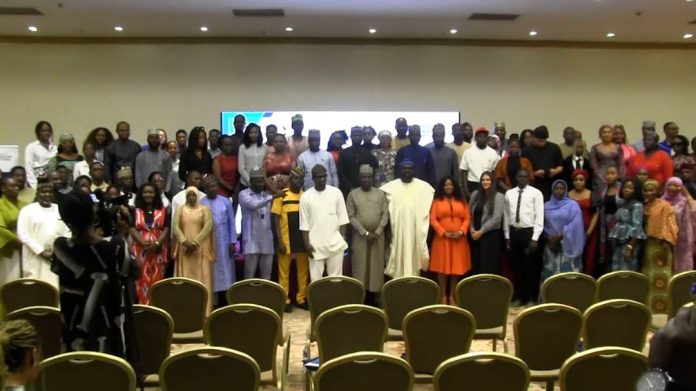As artificial intelligence (AI) reshapes the global media landscape, Nigeria has taken a bold step by establishing a UNESCO-backed Media and Information Literacy Institute, positioning itself at the forefront of international efforts to safeguard press freedom and combat misinformation in the digital age.
Speaking at the World Press Freedom Day celebration held at the Abuja Continental Hotel, the Minister of Information and National Orientation, Mohammed Idris—represented by Dr. Sulaiman Dauda, Director of Press at the Ministry—described AI as a “dual-edged force” that brings both opportunity and peril to journalism.
“AI is revolutionizing newsrooms, enabling faster content generation and augmenting investigative reporting,” he said. “However, this technological advancement also raises ethical concerns around bias, misinformation, and accountability.”
The event, jointly organized by Konrad Adenauer Stiftung (KAS) and the Centre for Journalism Innovation and Development (CJID), spotlighted Nigeria’s landmark achievement: the approval by President Bola Ahmed Tinubu and endorsement by seven countries—with 20 more expressing interest—to host a UNESCO Category 2 International Media and Information Literacy Institute at the National Open University of Nigeria (NOUN).
“This institute will serve not only Nigeria but the global community, equipping citizens to critically engage with media in an age of digital disruption,” the Minister declared, adding that media literacy is now a frontline defense against fake news, deepfakes, and politically motivated disinformation.
CJID: Journalism Must Evolve with AI
Executive Director of CJID, Mr. Akintunde Babatunde, emphasized that AI has already embedded itself in every stage of the news process—from generative tools aiding reporters to algorithms that shape public perception.
“Artificial intelligence is no longer theoretical; it is embedded in the DNA of modern journalism,” Babatunde said. “While it enhances storytelling and data analysis, it also brings real-time challenges like algorithmic bias, job displacement, and threats to editorial independence.”
He stressed the need for collaborative action, applauding KAS for fostering dialogue through the forum.
“This is not just about identifying problems. It’s about building a coalition—of technologists, journalists, policymakers, and civil society—to ensure that AI enhances rather than erodes press freedom,” he said.
House of Reps Moves to Regulate AI
Spokesperson of the House of Representatives, Hon. Akintunde Rotimi, added a legislative dimension to the discussions, warning that AI, if left unchecked, could “generate grammatically perfect lies” capable of destabilizing democracies.
“Technology is a tool, not a conscience,” Rotimi said. “We are already witnessing how deepfakes and false narratives influence elections and incite unrest across Africa.”
Rotimi disclosed that the House has passed the second reading of a consolidated bill co-sponsored by Speaker Abbas Tajudeen and others, aimed at regulating AI in Nigeria.
“The bill seeks to balance innovation with responsibility, ensuring that AI development respects human rights, press freedom, and public safety,” he stated.
He urged media practitioners and unions to strengthen internal regulatory mechanisms or risk external interventions that may compromise press autonomy.
Rotimi also cited global trends, noting a Pew Research Center survey showing that 41% of Americans are concerned about press freedom, and referenced Hungary, where over €1 billion in state funds have reportedly been used to silence independent media.
“In Nigeria, the press faces both overt pressure and the subtle erosion of credibility caused by click-driven, unverified reporting,” he warned.
KAS: Defending Press Freedom Requires Global Unity
Earlier, in her welcome remarks, Marija Peran, Resident Representative of KAS, underscored the global dimension of AI’s influence on journalism.
“AI is fundamentally altering how information is gathered, processed, and distributed,” she said. “This opens doors for innovation, but it also threatens press freedom, journalist safety, and media independence.”
She reaffirmed KAS’s commitment to strengthening democratic institutions, supporting independent media, and building journalist capacity across Africa.
“The erosion of press freedom is not isolated. It’s a global trend, and reversing it will take coordinated efforts from governments, civil society, and the media industry itself,” she noted.
Forum Outcomes: A Roadmap for Ethical AI in Journalism
The event concluded with a unified call for action, including the development of ethical guidelines for AI in journalism, capacity-building for media professionals, transparency in AI-generated content, and robust public education on media literacy.
As Nigeria positions itself as a leader in global media innovation and information ethics, stakeholders emphasized that the future of journalism must uphold human judgment, transparency, and democratic accountability alongside technological advancement.

